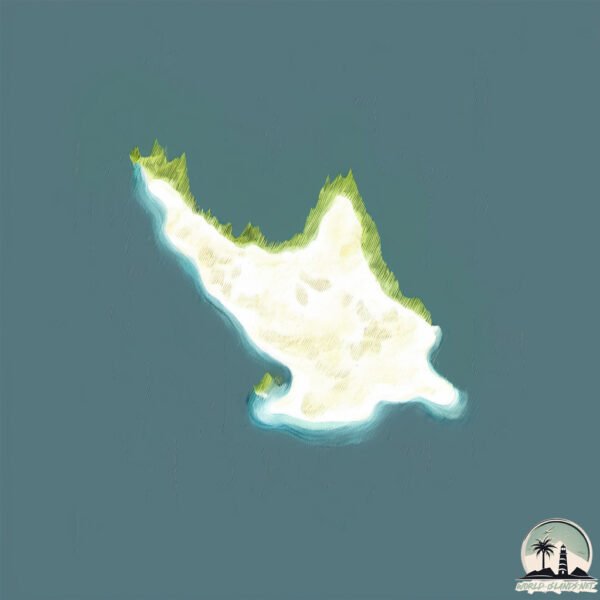Dasseneiland

Welcome to Dasseneiland, a Temperate island in the South Atlantic Ocean, part of the majestic Atlantic Ocean. This guide offers a comprehensive overview of what makes Dasseneiland unique – from its geography and climate to its population, infrastructure, and beyond. Dive into the details:
- Geography and Size: Explore the island’s size and location.
- Climate and Weather: Weather patterns and temperature.
- Topography and Nature: Uncover the natural wonders of the island.
- Infrastructure and Travelling: Insights on reaching, staying, and making the most of your visit.
- News and Headlines: Latest News.
Geography and size of Dasseneiland
Size: 2.691 km²
Coastline: 9.8 km
Ocean: Atlantic Ocean
Sea: South Atlantic Ocean
Continent: Africa
Dasseneiland is a Small Island spanning 2.7 km² with a coastline of 9.8 km.
Archipel: –
Tectonic Plate: Australia – A major tectonic plate covering Australia, New Zealand, and parts of the Indian and Pacific Oceans, known for its relative stability and occasional seismic activity.
The geographic heart of the island is pinpointed at these coordinates:
Latitude: -33.42446406 / Longitude: 18.08626265
Climate and weather of Dasseneiland
Climate Zone: Temperate
Climate Details: Warm-Summer Mediterranean Climate
Temperature: Warm Summer
Climate Characteristics: Characterized by warm, dry summers and mild, wet winters, typical of coastal areas with abundant sunshine Rain is more common in the winter months, maintaining a moderate climate.
Topography and nature of Dasseneiland
Timezone: UTC+02:00
Timezone places: Africa/Johannesburg
Max. Elevation: 6 m
Mean Elevation: 4 m
Vegetation: Sparse Vegetation with Trees/Shrubs
Tree Coverage: 57%
The mean elevation is 4 m. The highest elevation on the island reaches approximately 6 meters above sea level. The island is characterized by Plains: Flat, low-lying lands characterized by a maximum elevation of up to 200 meters. On islands, plains are typically coastal lowlands or central flat areas.
Dominating Vegetation: Sparse Vegetation with Trees/Shrubs
Areas where grasses and other herbaceous plants are prevalent, but with occasional presence of trees and shrubs. Often found in semi-arid regions or grasslands. Dasseneiland has a tree cover of 57 %.
Vegetation: 7 vegetation zones – Very Highly Diverse Island
Islands in this range are ecological powerhouses, showcasing a wide array of vegetation zones. Each zone, from lush rainforests to arid scrublands, coastal mangroves to mountainous regions, contributes to a complex and interdependent ecosystem. These islands are often hotspots of biodiversity, supporting numerous species and intricate ecological processes.
Infrastructure and Travelling to Dasseneiland
Does the island have a public airport? no.
There is no public and scheduled airport on Dasseneiland. The nearest airport is Cape Town International Airport, located 81 km away.
Does the island have a major port? no.
There are no major ports on Dasseneiland. The closest major port is SALDANHA BAY, approximately 44 km away.
The mean population of Dasseneiland is 0 per km². Dasseneiland is Uninhabited. The island belongs to South Africa.
Continuing your journey, Bengalena is the next notable island, situated merely km away.
Spearfishing Dassen Island



South Africa is classified as Emerging region: G20: Group of Twenty – Major economies comprising both developed and emerging countries, representing the world’s largest economies. The level of income is Upper middle income.
News – Latest Updates and Headlines from Dasseneiland
Stay informed with the most recent news and important headlines from Dasseneiland. Here’s a roundup of the latest developments.
Please note: The data used here has been primarily extracted from satellite readings. Deviations from exact values may occur, particularly regarding the height of elevations and population density. Land area and coastline measurements refer to average values at mean high tide.
